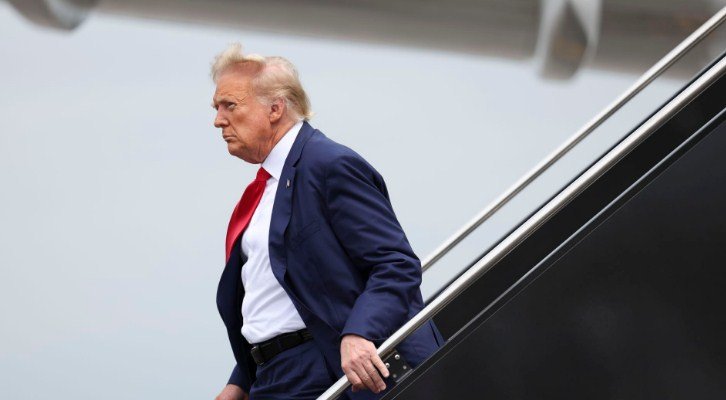Atlanta, the capital city of Georgia, is gearing up for what could be the fourth criminal indictment of former President Donald Trump since March. Trump is under investigation by Fulton County District Attorney Fani Willis for his alleged attempts to interfere with the state’s 2020 presidential election results, which he lost to Joe Biden by about 12,000 votes.
Willis, a Democrat, has said she plans to announce her decision on whether to indict Trump by the beginning of September. She has been probing Trump’s phone calls, letters, and meetings with Georgia officials, as well as his public statements and rallies, to determine if he violated any state laws.
Trump has denied any wrongdoing and called the investigations a “witch hunt” by his political enemies. He has also tried to disqualify Willis from the case, arguing that she has a conflict of interest because she was elected with the help of groups that opposed him. However, his efforts have been rejected by the Georgia Supreme Court and a lower court judge.
Atlanta locks down courthouse amid security concerns
As the possibility of a Trump indictment looms, Atlanta has taken extra security measures around the Fulton County courthouse, where Willis’ office is located. On Monday, police set up barriers and armed officers patrolled the area. The two right lanes of Pryor Street, a major road next to the courthouse, were reserved for media parking.
Willis also asked the court’s chief judge to not schedule any in-person trials or hearings over the next two weeks, citing safety reasons. She said she wanted to avoid any potential clashes between Trump supporters and protesters.
The courthouse lockdown is reminiscent of the security precautions taken in Washington, D.C., ahead of Trump’s second impeachment trial in February. Thousands of National Guard troops and police officers were deployed around the Capitol building, where Trump’s supporters had stormed on Jan. 6 in a violent attempt to stop the certification of Biden’s victory.
Georgia plays key role in federal indictment against Trump
The potential state-level indictment against Trump in Georgia is not the only legal challenge he faces over his election interference efforts. On Tuesday, a federal grand jury in Washington, D.C., indicted Trump for his role in inciting the Capitol riot, which resulted in five deaths and hundreds of injuries.
The federal indictment, led by special counsel Jack Smith, devotes significant time to actions that prosecutors say Trump and his associates took in Georgia to challenge his loss. It cites four key incidents that could also be relevant for Willis’ investigation:
- A “perfect phone call” on Jan. 2, 2021, in which Trump asked Georgia Secretary of State Brad Raffensperger, a Republican, to “find 11,780 votes” for him.
- A letter on Dec. 23, 2020, in which Trump urged Georgia Gov. Brian Kemp, another Republican, to convene a special session of the state legislature to overturn the election results.
- A meeting on Dec. 5, 2020, in which Trump pressured Kemp and Raffensperger to appoint a pro-Trump elector slate instead of the one certified by the state.
- A rally on Dec. 19, 2020, in which Trump urged his supporters to “fight like hell” and “stop the steal” of the election.
The federal indictment charges Trump with several counts of obstruction of an official proceeding, seditious conspiracy, aiding and abetting assault on federal officers, and engaging in acts of domestic terrorism. Trump pleaded not guilty at his arraignment on Thursday.
Trump faces other criminal cases in Florida and New York
In addition to the election-related cases in Georgia and Washington, D.C., Trump is also facing criminal charges in two other states: Florida and New York.
In Florida, Trump was indicted by a federal grand jury in June for retaining classified documents after leaving the White House. Prosecutors allege that he failed to return or destroy sensitive information that he had access to as president, such as national security briefings and intelligence reports.
In New York, Trump was indicted by a state grand jury in March for falsifying business records related to a 2016 hush money payment to porn star Stormy Daniels. Prosecutors allege that he directed his former lawyer Michael Cohen to pay $130,000 to Daniels to keep her quiet about an alleged affair with him.
Trump has denied all the charges against him and accused prosecutors of conducting a political witch hunt. He has also used his legal troubles as a fundraising tool and a rallying cry for his loyal base. Opinion polls indicate that he remains a clear frontrunner for the Republican presidential nomination in 2024.

